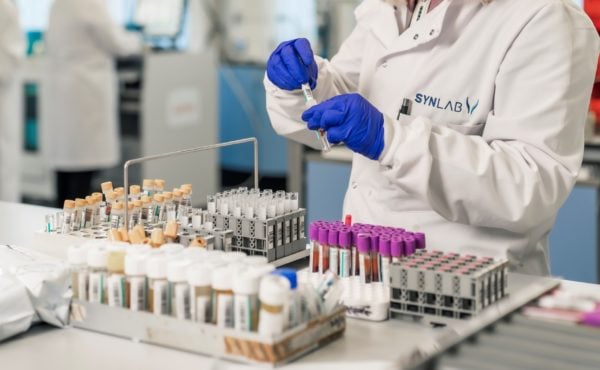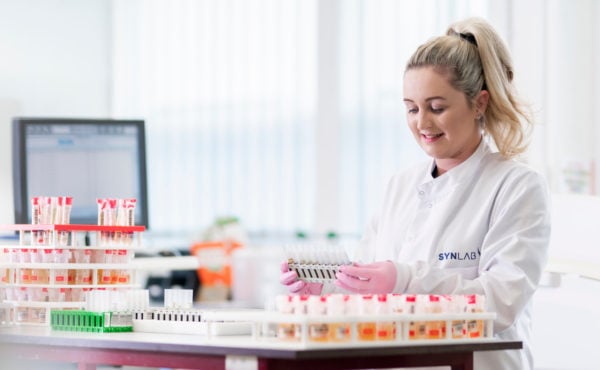Published: 13th July 2021 - All information correct at time of publication.
With COVID-19 restrictions easing across the whole of the UK and more employees returning to the office, the safety and wellbeing of employees is a topic that is front of mind for many employers.
To ensure a safe workplace, customers need to be able to identify, deter and rule out drug and alcohol misuse within the workplace. There have been numerous news reports about the pressures from the COVID-19 pandemic leading to an increase in drug and alcohol misuse. CIM research found that 27% of people say their alcohol consumption has increased as a result of the COVID-19 pandemic[1].
In this blog we take a look at the role the employer plays and the steps that can be taken to ensure that the workplace is safe and free from drug and alcohol misuse.
1. Create a Supportive Environment
Employers have a legal obligation under the Health and Safety at Work Act to ensure the health, safety and welfare of their employees. In some industries there are also legal requirements to have a Drug and Alcohol Policy.
While it is important that employees are aware of the legal responsibilities, employers should also make it clear that the organisation wants to create a supportive culture where people are able to get help, and how line managers can foster this.
The CIPD found that only 33% of employers provide information for employees on sources of support for drug and alcohol related problems[2]. A supportive culture can help to deal with issues before they become disciplinary issues.
2. Adopt and Spread Awareness of a Policy
In our previous blog, ‘Drug & Alcohol Policy: Who Owns it?’, we looked at which departments within an organisation manage a Drug and Alcohol Policy. Whichever department it is, it is the role of the whole senior management team to communicate the Drug and Alcohol Policy and why it is in place to all employees.
The Drug and Alcohol Policy should set out clear expectations of staff behaviour and the consequences of not meeting these expectations.
Whether or not your organisation is required by law to have a policy, it plays a key role in acting as a preventative measure.
3. Encourage Regular Training
With a wider return to the office now in sight, now is the time to ensure your team is equipped with the latest information on drug and alcohol testing and that their training is up to date.
Organisations play a critical role in ensuring that all line managers are trained on the firm’s Drug and Alcohol Policy, but despite this only 12% provide one-off training for line managers and 25% provide regular refresher training[3].
It is critical that those responsible for policy implementation and on-going delivery are sufficiently trained and that any staff remain competent when using testing products.
CIPD have published guidance for employers for managing drug and alcohol testing at work, including top tips for planning employee training.
How can SYNLAB Laboratory Services Help?
For over 30 years we’ve shared our expertise and worked with customers large and small to identify, deter and rule out drug and alcohol misuse in the workplace.
We can help new customers to implement a tailored policy with the aim of reducing and deterring substance misuse in the workplace. Our team of trusted experts can provide assistance in producing an effective policy that incorporates industry guidelines, follows best practice and is up-to-date with new and emerging trends.
Leveraging our experience as a trusted expert partner, SYNLAB Laboratory Services has a range of tools available to support you with educating, communicating, and training those enforcing the policy, as well as your wider employee base.
We also offer some simple tools, such as posters and pamphlets, to assist you in reinforcing the key messages of your policy across your organisation, which will inform and raise awareness amongst your employees.
For our existing customers, we can support your workforce’s return to work with refresher training and, if needed, a full review of your existing policy to ensure it’s still fit for purpose.
In addition to our drug and alcohol testing services, SYNLAB Laboratory Services’ pathology laboratory also offers a wide range of wellness/occupational health tests.
For further information contact our customer services team on [email protected] or 01873 856688.
[1] https://www.cipd.co.uk/knowledge/culture/well-being/drug-alcohol-misuse-work-report
[2] https://www.cipd.co.uk/knowledge/culture/well-being/drug-alcohol-misuse-work-guide#gref
[3] https://www.cipd.co.uk/knowledge/culture/well-being/drug-alcohol-misuse-work-guide#gref




